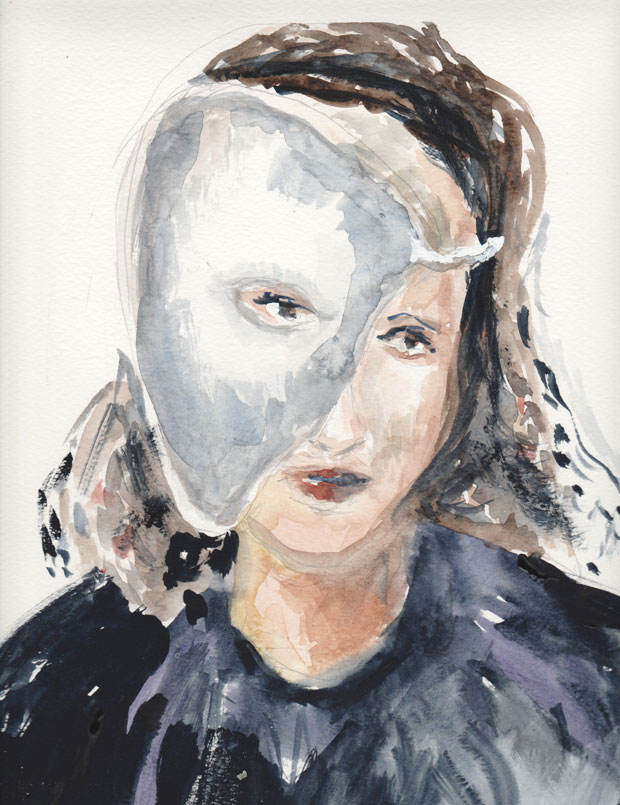Masks in History
How have masks been used in the past? We did a little research on masks. Ancient uses do not seem to be for health reasons. Earliest masks were for rituals and ceremonies.
Masks are commonplace in pagan worship and have polytheistic origins. Masks were never mentioned in Tanach (Bible — Torah, Prophets, Writings), and only appear in halacha (Jewish law) for the dubious and discouraged function of frightening children. (Shulchan Aruch O.C. 301:20). We plan to explore more about masks and Jewish law in a future post.
Masks have also been used as a way of allowing people to act without being recognized, as a form of disguise. An example is theater in ancient Greece: since the men played the women’s roles, all actors were disguised with masks. Traditional Korean masks were worn to honor local deities and perform the rites of exorcism over evil spirits.
Why mention mask history? Why is it relevant? The lack of logic that goes with wearing a mask feels like it requires believing something (as a religion) rather than proving it (using scientific methods). When one tears away all the arguments for wearing a mask, one is left with: just do it because it is our lucky talisman. It feels a religious law of the believers. The non-believers must go along with the dogma.
Are Masks Helpful Today?
In examining whether masks are helpful, one question to ask is for what purpose is the mask designed. For example, surgical masks were designed to keep droplets from one’s nose or mouth into a surgical field. They do not prevent respiratory viruses from circulating. Masks can work as part of a complex PPE (Personal Protection Equipment) system, and the type of mask matters greatly. You don’t take an Ebola patient in the hospital’s negative pressure room and give them a random mask and then say they can walk around the hospital and not worry about being contagious.
“PPE protect the EMT but not the patient.” That is basic EMS training. In short, the reason why is you contaminate the PPE when you put it on. So it does not protect another person if you wear a mask, even if the mask does work.
There is also a difference between a controlled environment and the rest of the world, an uncontrolled environment. Examples of controlled environments: surgical theater, negative pressure room, a clean room used in microchip production. All use complex protocols for PPE and complex climate control systems. There is no evidence that these masks, even the ones that are recommended by OSHA, would work in an open, uncontrolled environment like a store.
Masks have downsides: the more you can breath in a mask, the less protection they give (personal experience with different types of masks over the years and how much black mucus comes out of the nose afterwards). The exception are mask that are designed to help with breathing, like a one way valve or with supplemental air supply, like the turnout gear firefighters use. OSHA regulations require employers to make sure an employee can wear a mask without adverse medical effects. So when the government requires that citizens wear masks just to buy food in a local store, are they responsible if the citizen has adverse medical effects to a mask? What if the citizen is required to wear the mask all day at a job, and after hours or days in the mask, the citizen faints and is rushed to the hospital: is the government responsible if they are the ones that set up the mandate?
The news is beginning to shift in its information about masks. As an example the blog Legal Insurrection reports:
Slowly, the establishment media is beginning to admit that COVID is here to stay and has started to question some cherished pandemic policies. National Public Radio published a piece that admitted cloth face masks don’t work against COVID.
Are Masks Safe?
From the New York Times Bestselling authors of Plague of Corruption comes the must-read guide Truth About Masks: Exploring Theories Against Wearing Them by Judy Mikovits and Kent Heckenlively on masks and re-opening following the COVID-19 pandemic. In the book Dr. Russell Blaylock says:
“There is another danger to wearing these masks on a daily basis … When a person is infected with a respiratory virus, they will expel some of the virus with each breath. If they are wearing a mask, they will be constantly re-breathing the viruses, raising the concentration of the virus in the lungs and nasal passages. We know that people who have the worst reactions to the coronavirus have the highest concentration of the virus early on. And this leads to the deadly cytokine storm in a selected number. ”
“It gets even more frightening. Newer evidence suggests that in some cases the virus can enter the brain… By wearing a mask, the exhaled viruses will not be able to escape and will concentrate in the nasal passages, enter the olfactory nerves and travel to the brain.”
After quoting Dr. Blaylock, Dr. Mikovits continues: “God designed us to be healthy as possible in our natural environment.”
Should I Wear a Mask?
While we are currently living in a world where wearing a mask has become a badge of honor to some people, other people worry about getting sicker by wearing one. Since people are presenting a variety of evidence to back up their positions, why don’t we do what Americans have done for generations: leave the decision up to the individual.
Learn more:
- COVID-19 Masks: How Effective and How Safe?
- More Than 150 Comparative Studies and Articles on Mask Ineffectiveness and Harms
- Jim Meehan MD's e-book, "Why Wearing a Mask Makes Healthy People Sick"
- Do Masks Work? A Review of the Evidence
- Bacterial Contamination: The Other Side of the Mask Story They Never Tell You
- Disposable surgical face masks for preventing surgical wound infection in clean surgery
- A cluster randomised trial of cloth masks compared with medical masks in healthcare workers
- Nonpharmaceutical Measures for Pandemic Influenza in Nonhealthcare Settings—Personal Protective and Environmental Measures
- Use of surgical face masks to reduce the incidence of the common cold among health care workers in Japan: a randomized controlled trial
- Preliminary report on surgical mask induced deoxygenation during major surgery
- OSHA Code of Regulations (Rules on PPE)
- Mask mandate and use efficacy in state-level COVID-19 containment
- Executive Order by Governor of Virginia with Reasons for Rescinding Mask Mandate
- Masks and Jewish Law
- Source of Word Mask (Satire)
- Thread on Refuting the "Masks Work" Religion

